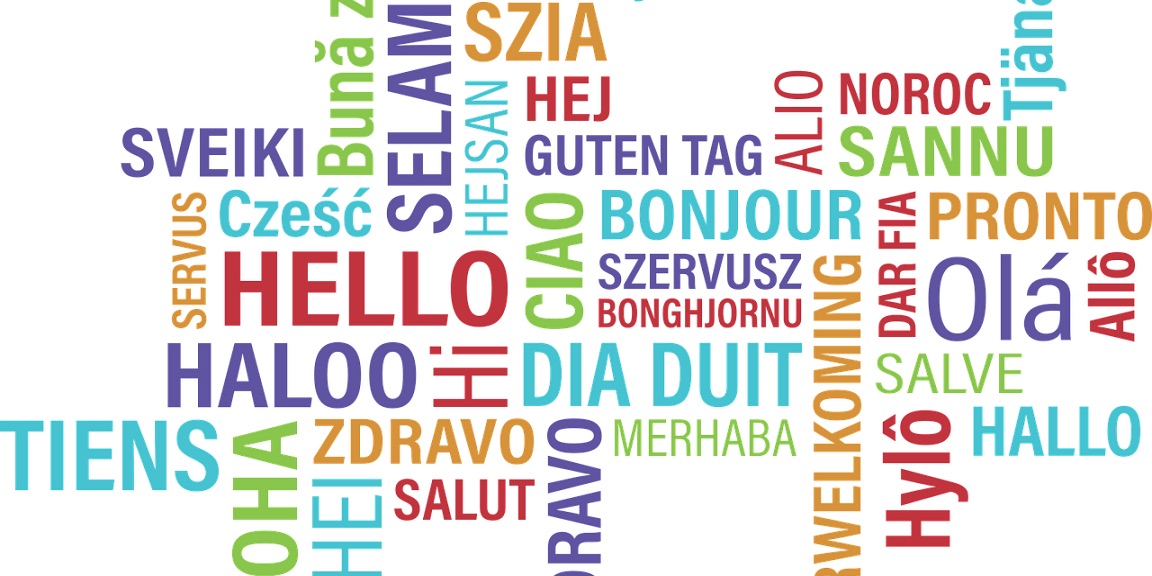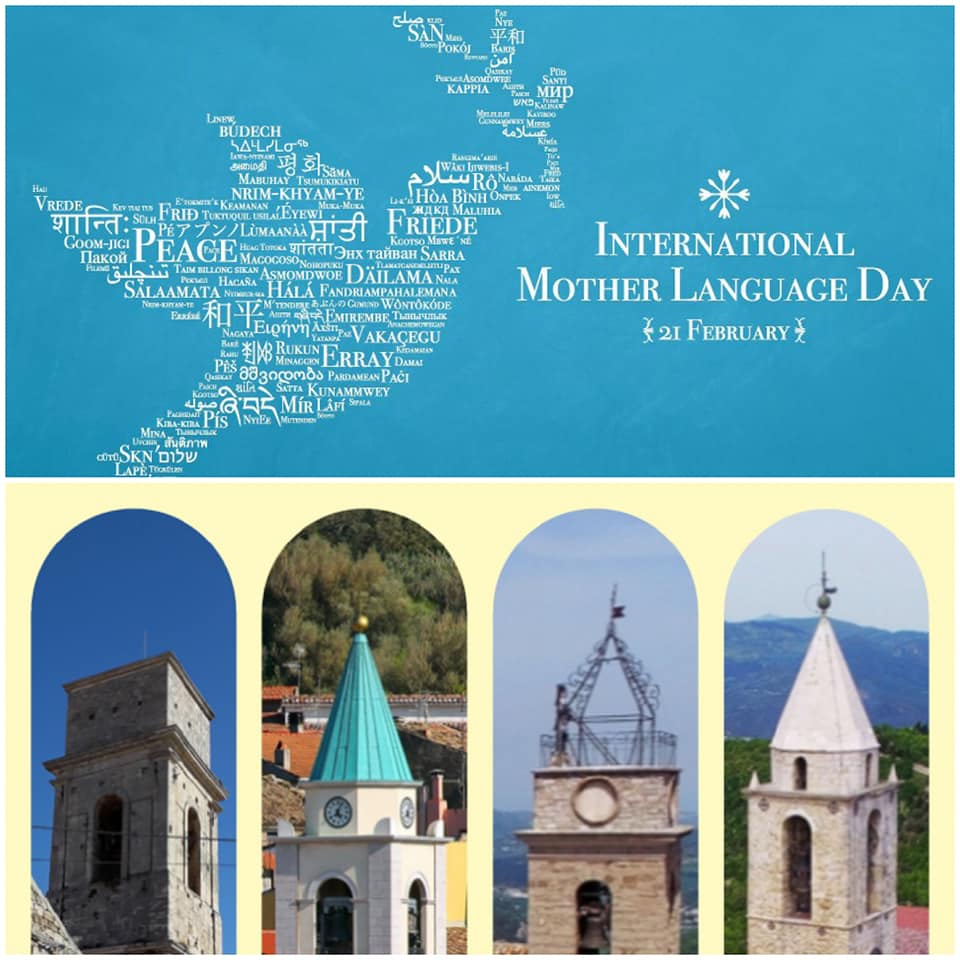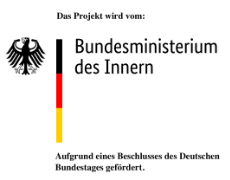
International Mother Language Day
21.02.2021
The Slavic languages form a main branch of the Indo-European languages. A distinction is usually made between East Slavic, West Slavic and South Slavic.
Around 300 million people speak one of the 20 or so Slavic languages as their mother tongue; 400 million including second speakers. By far the most speaker-rich Slavic language is Russian with around 145 million native speakers. Other significant Slavic languages are Polish and Ukrainian (around 50 million speakers each). Almost all major Slavic languages are national languages of their countries. The science of Slavic languages, literatures and cultures is called Slavic studies.
Source: German Wikipedia about Slavic Languages
SORBIAN MINORITY, Germany:
On the International Mother Language Day on February 21st (Sunday), Dawid Statnik, chairman of Domowina declares:
"Language is preserved by speaking. Sorbian is not only a mother tongue (maćeršćina), it is sometimes passed on as a father tongue or grandfather language - regardless of the fact that these words do not yet officially exist in Sorbian - maybe this will be part of the next gender debate. Many Adolescents have received important impulses for their language development not only from their parents, but also from previous generations, for example their grandmother. However, the responsibility for passing on and maintaining our language rests with each individual. Your own language, whether Sorbian, German or English etc. are preserved as long as they are used. As long as one maintains the language itself, it will continue to exist as an active language. We cannot leave that to anyone else, nor can we delegate it to the state. Of course, it is and remains a private matter, in what language you speak to your children and grandchildren - but we must each Make generation aware that such a private decision has an impact on the present and future of our people, which the best educational concepts for kindergarten and school can neither replace nor compensate for. Of course, together with the state, we take care of the necessary legal framework. We live in an era of freedom. Nobody forbids us to use our language, and anyone who tries to break the law is breaking the law. This is a victory of reason and a consequence of the fact that our ancestors got rid of the trap of nationalist thinking and the downgrading of "other" peoples. "
There are still 7,000 languages in the world. Around a thousand have already disappeared and 3,800 are threatened. That is why UNESCO wants to raise awareness for the promotion of minority languages with the International Mother Language Day. The main reason for the death of one language is the dominance of another language. From year to year we welcome more intensive measures by the federal states of Brandenburg and Saxony to encourage the use of Lower Sorbian, Upper Sorbian and Schleifer Sorbian. We are on the right path together here, but the most important thing is still a major challenge: consistent equality, which is lived every day and as a matter of course.
The Sorbian lettering on all public buildings, boards, signposts everywhere and of course in the same size as the German - this is the new standard that we are campaigning for. In the meantime, I can see good results that strengthen Sorbian in public. This is not just an etiquette, but an expression of mutual respect, awareness of history and cultivation of the uniqueness of Lusatia.
Regardless of this, we ourselves have an obligation to set good examples. Events that only greet and say goodbye are not in Sorbian - if people are present who can express themselves in Sorbian, they should be given the right to actively bring our bilingualism to life. May we love this bilingualism like our holidays abroad or our visits to the culinary world of other countries. We are always curious about something “different” there. There are many opportunities. We should fearlessly use simultaneous interpreting and the associated technology more often so that we can expand our linguistic areas throughout Lusatia. In addition, there are more people in Lusatia who understand Sorbian than we think.
On the day of the mother tongue we should become aware of our wealth. Language is a feeling, it is home and our identity - regardless of whether you are German, Sorbian, Kurdish or Spanish. Only if we respect the other person's language will he show this respect for my language as well. "
In Sorbian language:

The Facebook page Riča Živa (Living Word) of Molise Croatians in Italy has made the following contribution:
Today, February 21st, the world celebrates Mother Language Day. Who knows better than us the importance of the language transmitted by our mothers, which we have kept in ourselves and in our countries for five centuries. May this beautiful language be heard by our mothers and children for a long time ...
LET'S SPEAK CROATIAN IN MOLISE!
The article in Molise-Croatian language:
Danas 21 frebara na svito je 'Dan jezika matere'. Ko bolje do nas znade koko je imbortandi jezik ke smo se naučil do našihi materi, ke čuvamo pet sekuli unutra nas oš na naše grada. S našimi materi, s našimi dicami neka se čuje još čuda vrimena ovi naš lipi jezik...
GOVORIMO NA-NAŠO!
MACEDONIANS IN ALBANIA:
The Macedonian Association "Ilinden" -Tirana congratulated the members of the Macedonian national minority in the Republic of Albania as well as all Macedonians around the world on the occasion of the International Mother Language Day on February 21.
We congratulate you on this day and would like to highlight the knowledge and promotion of the Macedonian mother tongue for the children of the Macedonian national minority in the Republic of Albania. "Maintaining the Macedonian mother tongue means strengthening and preserving national and cultural identity so that our children are brought up to properly cultivate their national, cultural and religious traditions," says the greeting card. The importance of education in the mother tongue is also emphasized as it is currently the most important segment for promoting the broader lines of a nation.
There are Macedonians in Albania in four ethnic areas: Golo Brdo, Mala Prespa, Gora, Vrbnik, as well as in the largest cities - Tirana, Elbasan, Durres, Korca, Bilishta, Podgradec, Shkodra, Kukes, Berat, Librazhd, Vlora, Fier, Pathos . According to estimates by Macedonian organizations in the country, the number of Macedonians in Albania is over 120,000. Unfortunately, in the 21st century, only in Mala Prespa do they have the right to education in their mother tongue, the company said.
He recalls that for three decades all Albanian governments have been demanding a mother tongue education for the children of Golo Brdo, where Macedonian was taught until the 1950s, then in Gora and other parts where the concentration of Macedonians is higher but positive no answer.
Original News in Macedonian language in Vesnik Ilinden:
Македонското друштво „Илинден”-Тирана по повод одбележувањето на Меѓународен ден на мајчиниот јазик, 21 февруари, упати честитка до припадниците на македонскато национално малцинство во Република Албанија, како и до сите Македонци ширум светот.
Честитајќи ви го денешниот ден, сакаме да го истакнеме знаењето и негувањето на мајчиниот македонски јазик за децата од македонскато национално малцинство во Република Албанија. Негувањето на мајчинот македонски јазик значи јакнење и зачувување на националниот и културен идентитет, со што нашите деца ќе бидат воспитани соодветно да ги негуваат своите национални, културни и верски традиции,стои во честитката. Се нагласува и значењето на образованието на мајчин јазик, бидејќи, како што стои, тоа е најважниот сегмент во негувањето на основните обележја на еден народ.
Македонците во Албанија ги има во четири етнички области: Голо Брдо, Мала Преспа, Гора, Врбник, како и во најголемите градови – Тирана, Елбасан, Драч, Корча, Билишта, Подградец, Скадар, Кукс, Берат, Либражд, Валона, Фиер, Патос. Бројноста на Македонците во Албанија е над 120.000 според проценка на македонските организации во земјата, но за жал во 21 век, само во Мала Преспа, имаат право на овразование на мајчин јазик, наведува друштвото.
Потсетува дека веќе три децении од сите албански влади барале обрзование на мајчин јазик за децата од Голо Брдо, каде настава на македонски имало до педесеттите години од минатиот век, потоа во Гора, како и во другите делови каде концентрацијата на Македонците е поголема, но позитивен одговор нема.


